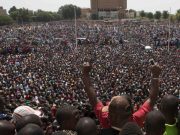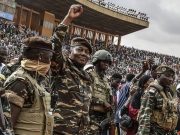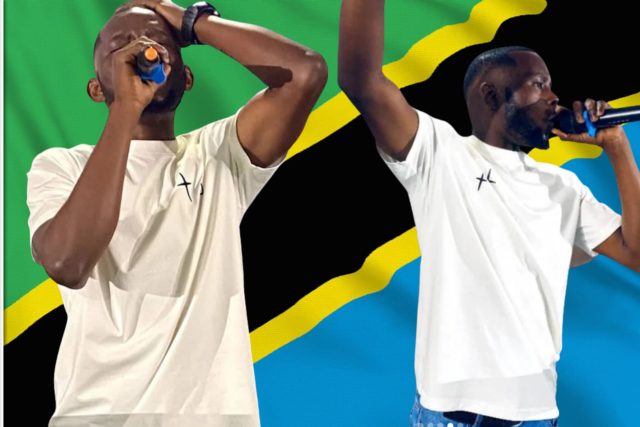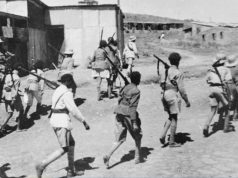Samwel was on his way to becoming one of the top gospel musicians in Africa and the world. That is how devoted and focused he was. His life revolved around faith, music, and family. Every note he sang carried light. Every lyric he wrote reflected conviction. He believed that music could lift people from despair and remind them of God’s presence in their struggles.
His name was Samwel Eusebio Mgimwa. He was born on August 24th, 2001 and died on October 29th, 2025.
On that day, Tanzania was gripped by election chaos. Streets were filled with tension, and gunfire echoed through neighbourhoods that had once been peaceful. Samwel lived in Kimara Korogwe, a modest area in Dar es Salaam. Like many families, his household feared that the unrest would worsen. Wanting to protect his loved ones, he decided to step out and buy basic food items such as rice and beans so they could survive possible days of lockdown. It was a small act of care, one born from love and responsibility.
He never returned home.
At a small local shop, police officers appeared carrying rifles. Witnesses say they did not issue warnings. They simply began shooting. Samwel was hit in the stomach. The bullet tore through him, spilling his intestines onto the ground. As he bent over, trying to hold himself together, another bullet struck him from behind. He was rushed to the hospital, but his injuries were too severe. He was pronounced dead and buried on November 6th in Dar es Salaam.
Samwel was a university student, the firstborn in his family, and a pillar of hope for his three younger siblings. Those who knew him describe him as kind, patient, and deeply spiritual. He spent much of his time writing music and singing in his church choir. His voice was clear and powerful, full of sincerity and emotion. People say his singing could silence a room and bring peace to troubled hearts.
He dreamed of one day filling churches and stadiums with worship. His gifts were undeniable, and his faith was unshaken.
A Crime That Reflects a National Tragedy
Samwel’s killing is one among tens of thousands of deaths that occurred during and after Tanzania’s 2025 elections. Human rights observers estimate that between 15,000 and 30,000 people were killed by state forces. The scale of the tragedy defies comprehension.
For perspective, the September 11th attacks in the United States killed 2,977 people. That single event changed global history. Yet what has happened in Tanzania has claimed ten times that number.
The Sharpeville Massacre of 1960 in South Africa, where 69 unarmed civilians were gunned down, became a symbol of state brutality that shook the world. Tanzania’s tragedy is far greater, yet it remains buried in silence.
The Rwandan genocide, one of the darkest chapters in African history, killed approximately 800,000 people in 100 days. Tanzania’s killings are on a different scale, but the pattern of state-sponsored violence, denial, and fear carries a dangerous familiarity.
The world is not watching. The institutions meant to protect civilians are silent. The grief is private, forced behind closed doors by fear.
Faith Under Fire
Samwel was not a protester. He was not part of any political movement. He was a young Christian man who believed in peace and compassion. His life was centered on worship, prayer, and service. For many believers across Tanzania, his murder has shaken the foundation of their faith.
When a gospel singer is shot while buying food for his family, the message is terrifyingly clear. When churches lose their singers, communities lose their sense of safety. Religious harmony, long cherished in Tanzania, becomes fragile when state violence targets citizens indiscriminately.
Faith has always been Tanzania’s anchor. The killing of believers like Samwel threatens to tear that anchor from the ground.
A Parliament That Must Not Forget
To the newly sworn in members of Tanzania’s parliament, the message is simple. It cannot be business as usual. Not while parents bury their children. Not while families search for missing loved ones. Not while a generation is being silenced.
Justice must come for Samwel. Justice must come for the thousands who were killed in the same wave of violence. Until accountability begins, every political speech will ring hollow.
The Song That Lives On
Samwel’s voice may no longer echo through church halls, but his memory lives on in the hearts of those who heard him sing. His siblings still play recordings of him on their phones. His friends still talk about his dreams. His church still feels the absence of the young man whose voice once led worship.
His life was short, but it was full of purpose. He lived with compassion. He lived with faith. He lived with love.
And although his song was silenced by bullets, his story must rise louder than the violence that took him.
The world may not know his name yet.
But Tanzania will never forget Samwel Eusebio Mgimwa.
May his memory strengthen the call for justice.
May his legacy inspire courage in a nation afraid to speak.
May he rest in peace.

























